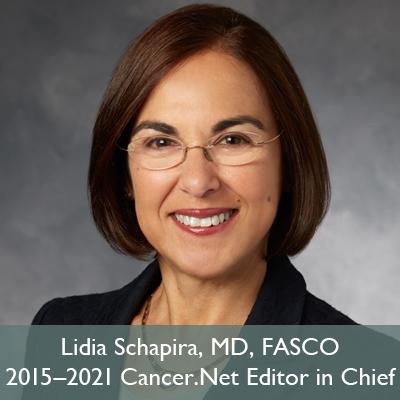
Living with uncertainty was once a topic we thought was of particular interest for people with cancer and their caregivers. But now, with the COVID-19 pandemic, uncertainty has become everybody’s new normal. Healthy neighbors are now familiar with words like “contagion” and “exposure,” and a trip to the grocery store is a gamble that could prove fatal for anyone.
Every day, we receive updates that resemble a medical conference: a tally of new cases tested, a number of those admitted to the hospital, those transferred to an intensive care unit (ICU), those intubated, and those discharged. Clinical trials of new antiviral drugs and supportive care interventions to mitigate the body’s reaction to the virus are being discussed on national television every day. We are all at risk for becoming that next patient or that next statistic.
Those of us who work in health care are dutifully focused on discovery so we may help protect the future of those we love. Clinical trials that are focused on creating vaccines and treatment for the virus are underway. Hospitals and clinics are taking important measures to make sure people get the care they need in a timely way and within a protected environment. For those at home, we have the technology to be able to keep in touch, even if we can’t be present physically. We can also take steps to keep ourselves healthy, including maintaining a healthy diet and exercise routine.
Yet despite these positive steps we are all taking to address the virus, these are still especially difficult times for those diagnosed with cancer during the COVID-19 pandemic. Some may have limited access to cancer treatment because they live in an area that is facing a COVID-19 surge, and because of that, every bed and procedure that is not lifesaving needs to be postponed. With some surgeries delayed, more newly diagnosed patients are receiving chemotherapy as their first treatment. I worry that we have spent decades creating a high-touch culture to convey warmth, support, and empathy for patients and caregivers, and we are simply unable to deliver it just at this time of great need.
There are many examples of how COVID-19 has impacted the way we must now care for people with cancer. A hematologist reflected on her sadness at having to deliver unfortunate news to a patient lying alone in her hospital bed from the safe distance of a chair positioned 6 feet away. Infusion centers do not allow visitors in order to limit exposure, so patients experiencing their first infusion must do so alone. Enforcing social distancing in hospitals and cancer clinics is not only counterintuitive to our culture but also defies the knowledge gained over decades of practice and study. It will take us years to fully appreciate the impact of these shared experiences.
And then there is the risk of infection and the fear that cancer itself, or treatment for cancer, could create a more severe course of COVID-19 for people with cancer. Some cancer survivors also fear they have weakened immune systems. Some may find that the constant reminders of infection trigger old anxieties and memories that were hidden and now released under these conditions of stress. They had mastered self-protective practices that are now resurfacing: avoiding contact with anybody who could harbor a virus during flu season, handwashing often, and avoiding crowds.
Cancer survivors, for the most part, have seen their routine tests postponed and follow-up visits delivered via phone or video. I am quickly learning how to assemble my team using phones and tablets placed next to a laptop microphone, and I look forward to having better platforms for group visits soon. I learned from a colleague that he had successfully conducted visits using a video conference system and was able to meet his patient, a remote caregiver, and another specialist on a call. He even shared his screen to display the images he wanted to show his patient. Perhaps there is a silver lining, and it is that these new ways of delivering health care will be here to stay.
While we lament the temporary suspension of a high-touch culture and miss the hugs and handshakes, we need to remind ourselves that nothing about this pandemic is intuitive. Our gut feelings won’t help us get through this. Instead, we need to accept the guidance of scientists and race to learn how to prevent and combat this disease as swiftly as possible. In the meantime, we must support one another and be grateful for the individual sacrifices that help our communities to stay safe.
